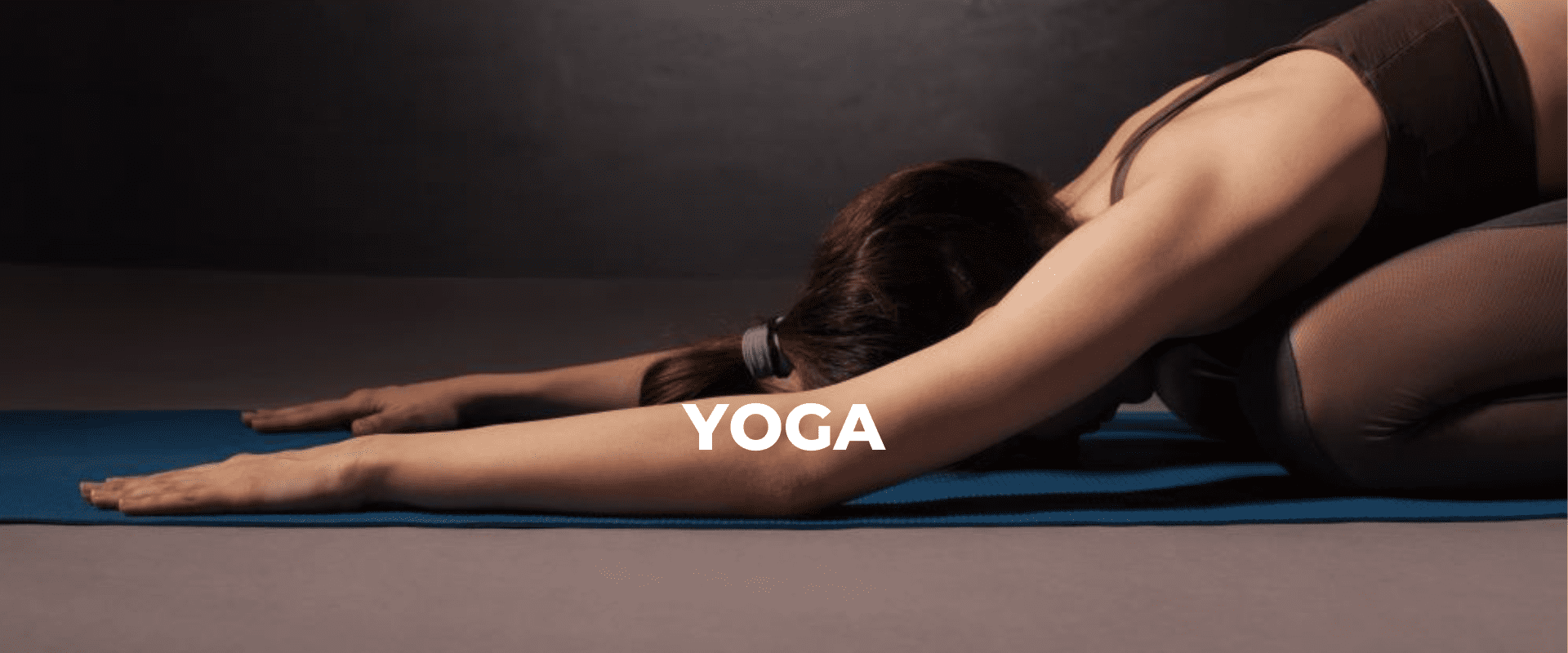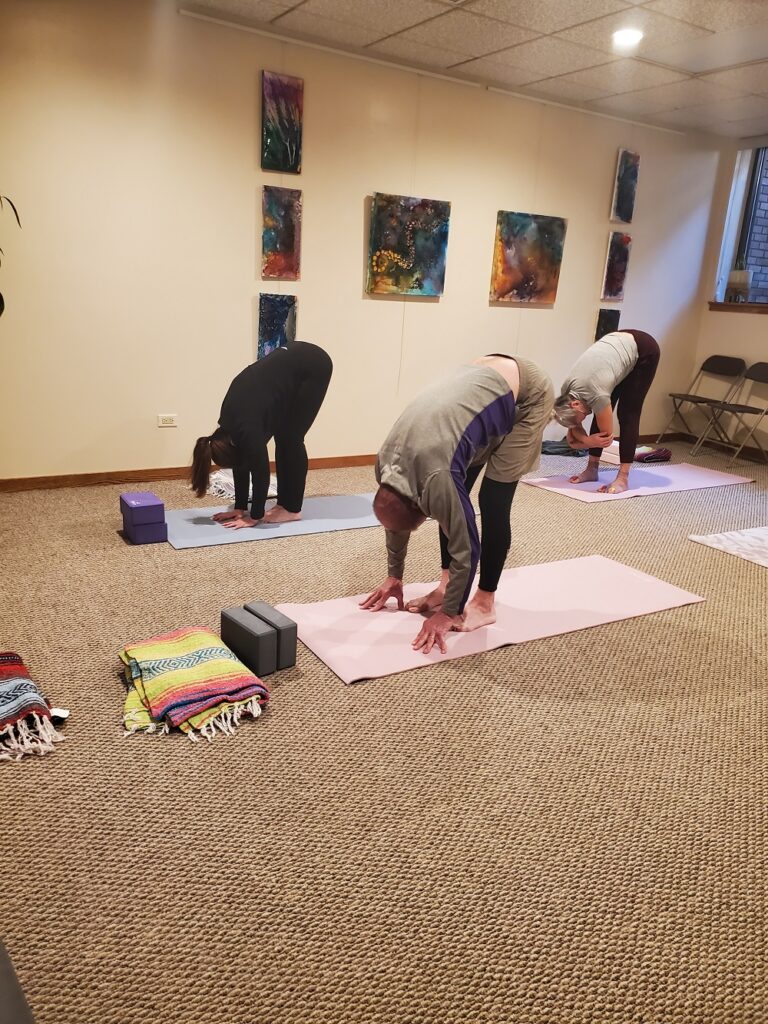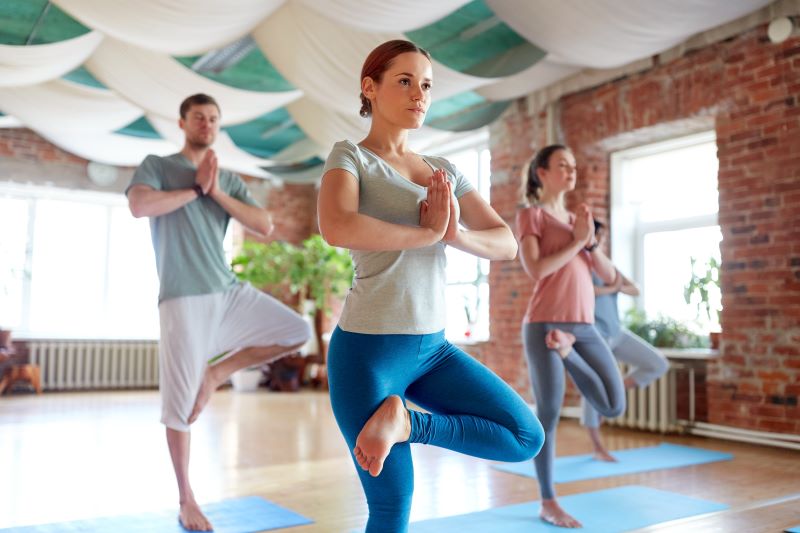
In this fast-paced and demanding modern life, yoga emerges as a timeless practice that offers a multitude of benefits for the mind, body, and spirit. Beyond the physical postures, it is a journey of self-discovery, promoting balance, mindfulness, and a profound sense of well-being.
Yoga at Boundless Body and Wellness is for Everybody and Every Body!
Whether you are just beginning or are a seasoned yogi, the practice of yoga invites you to embark on a journey of holistic wellness.
The practice of yoga was gifted to us thousands of years ago, the earliest presence being somewhere around 250,000 BCE. The original practitioners of yoga knew there were many benefits to this practice, however the full physiological benefits have only been recognized recently.
How Yoga Can Benefit You?
Yoga can be one of the tools that you use to find a moment of tranquility and balance. Beyond its physical postures, yoga offers a holistic approach to health, blending the mind, body, and spirit.
Physical Well-being:
Yoga encompasses a wide array of postures and movements that promote flexibility, strength, and balance. Each pose has a purpose – engaging different muscle groups and enhancing overall physical fitness. Regular practice can lead to improved posture, increased muscle tone, and enhanced joint health through increased synovial fluid that lubricates the joints. Yoga can help to reduce pain from scoliosis and strengthen the muscles that support the spine.
These are things that do not happen overnight; this growth happens with time. When practiced safely, yoga can help heal injuries and reduce some chronic pains. At Boundless, we make it a point to offer modifications to make the poses more accessible, which helps build strength and endurance.
Mental Clarity and Focus:
The union of breath and movement in yoga fosters mindful awareness, allowing participants to be fully present in the moment yet expanding beyond the mat, promoting mental clarity and heightened focus in daily life. The meditative aspects of yoga contribute to stress reduction, aiding in better emotional regulation and mental well-being.
Stress Reduction and Relaxation:
In our hectic lives, stress has become an unwelcome companion. Yoga provides a sanctuary for relaxation, incorporating techniques such as deep breathing and meditation to soothe the nervous system. Regular practice can significantly reduce stress levels, promoting a sense of calm and balance.
Trauma and Emotional Release:
Trauma and strong emotions such as anxiety and depression can greatly benefit from consistent practice in yoga. Yoga helps to engage the parasympathetic nervous system, taking us out of the fight or flight stress response which lives in our emotional brain (amygdala). It further activates our thinking brain (prefrontal cortex). As a result, practicing yoga as little as once a week can help to regulate breathing, reduce inflammatory response, decrease depression and anxiety, and expand our body’s ability to hold emotion and stress.
When we experience trauma, the prefrontal cortex tends to go blank and the amygdala lights up. Sometimes trauma that is big enough or consistent rewires the brain to act out only from the emotional brain. When we are triggered by said trauma, the brain reacts as if the trauma is happening in real time. The connection of mind/body/spirit aspect of yoga combined with neuroplasticity (our brain’s ability to change) allows yoga to help to reset the brain from the trauma, so you are living in the now with ease.
Balanced Energy:
Yoga believes in the concept of balancing energy centers or chakras within the body. Through specific poses and meditation, practitioners aim to align these energy centers, fostering a sense of equilibrium. This balance is thought to contribute to overall health and vitality.
Improved Sleep Quality:
The relaxation techniques inherent in yoga, particularly towards the end of a session, prepare the body and mind for restful sleep. Regular practice has been linked to improved sleep quality, making it an excellent remedy for those grappling with insomnia or irregular sleep patterns.
Community and Connection:
Yoga classes provide a supportive community where individuals share their wellness journey. The sense of connection and shared intention fosters a positive environment, promoting a sense of belonging and support. At Boundless Body and Wellness, we welcome all to participate and encourage you to come as you are.
At Boundless Body and Wellness, we take your health seriously…but with some fun and enjoyment! Along with yoga, we have all the tools to help you live in balance and harmony with your body. We encourage you to make yoga a welcome addition to your daily life and self-care!

Yoga FAQs
What is Yoga?
Yoga is a holistic practice that originated in ancient India. It encompasses physical postures (asanas), breath control (pranayama), meditation, and ethical principles aimed at promoting overall well-being and harmony.
What are the benefits of practicing yoga?
Yoga offers numerous benefits, including improved flexibility, strength, balance, stress reduction, mental clarity, relaxation, and enhanced overall physical and mental health.
Do I need to be flexible to do yoga?
No, you don’t need to be flexible to start yoga. Yoga is accessible to people of all fitness levels and body types. Regular practice can gradually increase flexibility.
How often should I practice yoga?
The frequency of practice depends on individual goals and schedules. Ideally, practicing yoga 2-3 times a week can yield noticeable benefits. Consistency is more important than intensity.
Is yoga only for women?
No, yoga is for everyone. It is a practice that benefits both men and women, regardless of age or fitness level. Many athletes and people of all backgrounds incorporate yoga into their routines.
Can I practice yoga during pregnancy?
Yes, prenatal yoga is a specialized form of yoga designed for pregnant women. It can help with relaxation, flexibility, and preparing the body for childbirth. Angela is a certified pre and postnatal yoga instructor and can modify classes for you. However, it’s important to consult with a healthcare professional before starting any new exercise routine during pregnancy.
Do I need special equipment for yoga?
Generally, all you need is a yoga mat. Some styles may use props like blocks, straps, or blankets to aid in certain poses. We offer the use of these props at Boundless. Comfortable clothing that allows for movement is recommended.
Can yoga help with stress and anxiety?
Yes, yoga is known for its stress-relieving and anxiety-reducing effects. The combination of physical postures, breathwork, and meditation can help calm the nervous system and promote mental well-being.
Is there an age limit for practicing yoga?
No, there is no age limit for practicing yoga. People of all ages, from children to seniors, can benefit from yoga.
Can yoga help with back pain?
Yes, yoga can be beneficial for relieving and preventing back pain. Certain poses and stretches can strengthen the back muscles, improve posture, and enhance overall spinal health.
How long does a typical yoga session last?
The duration of a yoga session can vary but we offer 60 min classes and 90-minute workshops at Boundless Body & Wellness in Arvada.
Can yoga help with insomnia?
Yes, practicing yoga, particularly relaxation techniques and gentle postures, can help alleviate insomnia. The calming effects of yoga can promote better sleep patterns and improve the quality of sleep.
Is it okay to eat before a yoga session?
It’s generally advisable to avoid heavy meals immediately before yoga. However, a light snack an hour or two before a session can provide the necessary energy without causing discomfort during practice.
Can I do yoga if I have injuries?
In many cases, yes. However, it’s crucial to inform your yoga instructor about any injuries or health concerns before the class. They can offer modifications to ensure a safe practice and prevent further injury.
What is the importance of breath control (pranayama) in yoga?
Pranayama focuses on controlled breathing techniques. It helps calm the mind, improve lung capacity, and enhance the flow of life force energy (prana) throughout the body. It is a vital component of yoga practice.
Can yoga be a substitute for cardiovascular exercise?
While yoga offers cardiovascular benefits, it may not be a complete substitute for traditional cardio exercises like running or cycling. Combining yoga with aerobic activities can provide a well-rounded fitness routine.
Is yoga a good option for stress relief in the workplace?
Yes, many companies offer workplace yoga programs to help employees manage stress and improve overall well-being. Short, office-friendly yoga sessions can be effective in reducing workplace-related tension and boosting productivity.

Remember, yoga is a versatile practice, and the key is to find what works best for your individual needs and preferences. Always listen to your body and practice at your own pace.


